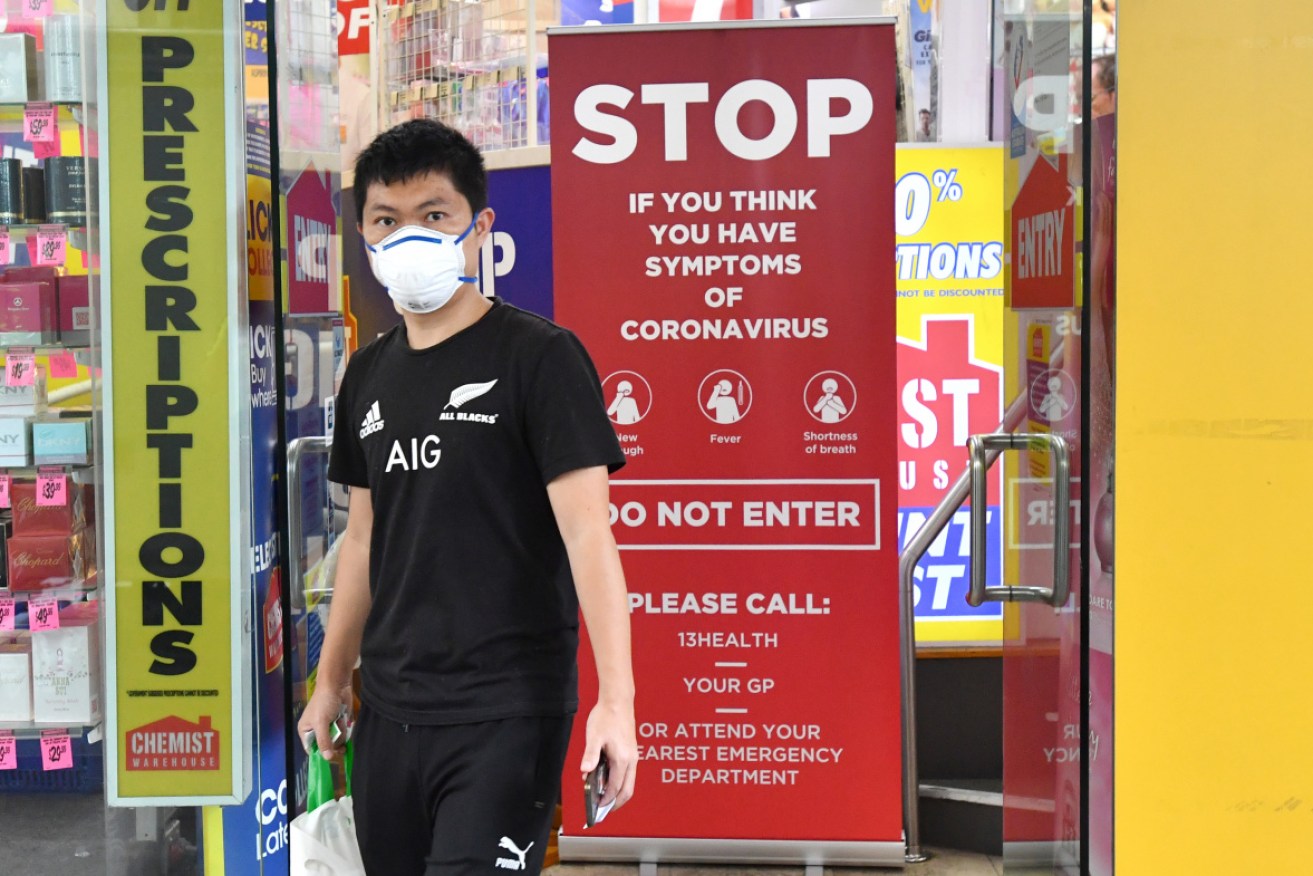Border control: Qld latest state to close borders to slow virus spread


Queensland recorded its highest increase of the coronavirus in a 24-hour period, with 60 new cases, taking Queensland's total number of cases to 319. Photo: AAP
Queensland has become the latest state to announce it will close its borders – joining South Australia, the Northern Territory, Tasmania and Western Australia – to try to halt the spread of COVID-19.
Queensland’s borders will close at midnight on Wednesday, while Tasmania, South Australia and Western Australia announced border control measures on Sunday.
However, Victoria’s borders with NSW and SA will remain open.
Following Queensland Premier Annastacia Palaszczuk’s announcement on Monday, means anyone entering the state – particularly those returning from holiday or interstate travel – must isolate themselves for 14 days.
Officials are working out the finer details of who the bans will apply to and how it will be regulated. That information will be released on Tuesday.
Queensland’s closure is made more complex by its southern border running through the middle of the Gold Coast.
Tweet from @AnnastaciaMP
Ms Palaszczuk’s decision comes after people were banned from hanging out publicly and in large groups to comply with Australia’s strict new social shutdown policies.
“I talked yesterday about some tough love and more will be rolled out in the coming weeks and months,” Ms Palaszczuk said.
“We know that if we are all playing our part and we’re all working together, we can absolutely get through this.”
She said there was light at the end of the coronavirus tunnel, but only if everyone followed orders to stay 1.5 metres away from each other, and the government’s social closure orders.
Holidays planned during the school break should also be cancelled.
Queensland’s announcement came as Centre Alliance senator Rex Patrick confirmed he has become the fourth federal politician to catch the coronavirus.
The crossbencher has been in self-isolation at home after coming into contact with Liberal senator Andrew Bragg, who also has the virus.
Tweet from @Senator_Patrick
“SA Health has advised me that, despite being asymptomatic, my COVID-19 test has returned positive,” Senator Patrick tweeted on Monday.
“I have assisted them with comprehensive contact tracing and they’ll call anyone considered at risk.”
Senator Patrick, Senator Bragg, Nationals senator Susan McDonald and Home Affairs Minister Peter Dutton have all contracted the disease.
South Australia and Western Australia
South Australia has also introduced border measures, which will come into effect on Tuesday afternoon, with 12 control stations to be established.
Police will also be on duty at train stations and airports.
Anybody entering SA will be asked to sign a declaration that they will self-isolate for 14 days.
Police Commissioner Grant Stevens said it was expected the border controls would prompt most people to reconsider travelling to or from SA.
There are exemptions for emergency workers and other essential services, as well as those who live close to borders and needed to make regular crossings.
Western Australia will introduce similar restrictions from 1.30pm on Tuesday (local time).
“These are extreme steps but these are extreme days,” Premier Mark McGowan said on Sunday.
Queensland
Health Minister Steven Miles said 60 additional cases of coronavirus were confirmed overnight, bringing the state’s total to 319.
Hospitals are beginning to reschedule less urgent surgeries to make way for those in need of treatment for COVID-19, and Queenslanders are being urged to donate blood.
Victoria says borders will remain open
Premier Daniel Andrews confirmed Victoria’s borders with NSW and SA would remain open, despite moves by other states to close theirs.
“I’m not interested in closing our borders. I don’t think that makes a lot of sense for us,” he said.
Mr Andrews said if people followed the latest restrictions, including on non-essential travel, borders could remain open.
“If social distancing is applied, if people use common sense, act in their interest in and the interest of everybody else, instead of acting in a selfish way, then I don’t think we need to get to the point (of shutting borders),” he said.
Any Victorian entering SA will be required to self-isolate for 14 days, and the border controls will apply to all road, air, rail and sea access points.
-with AAP








